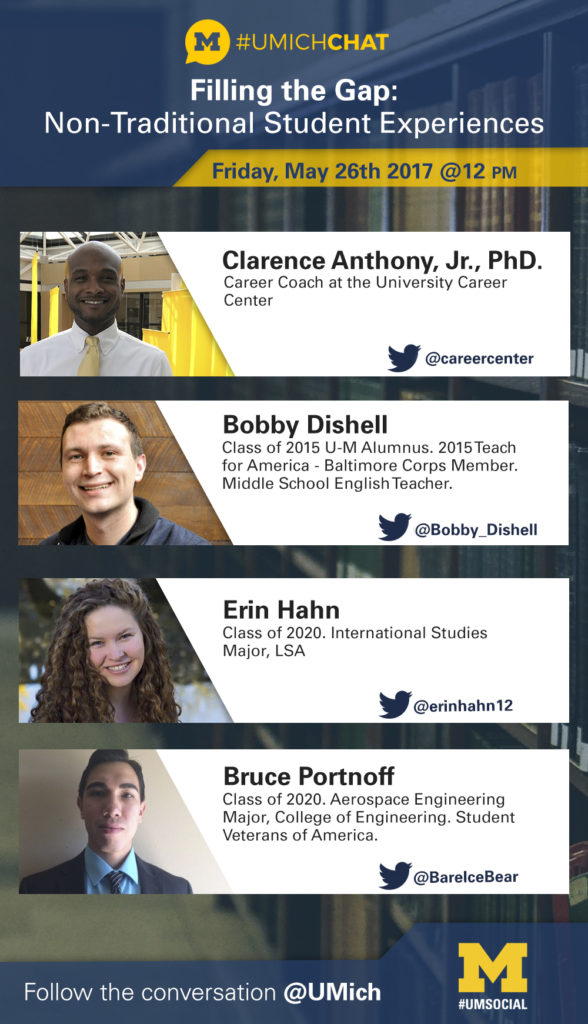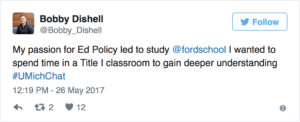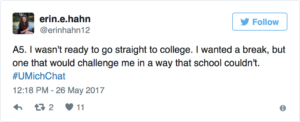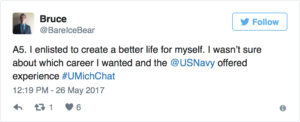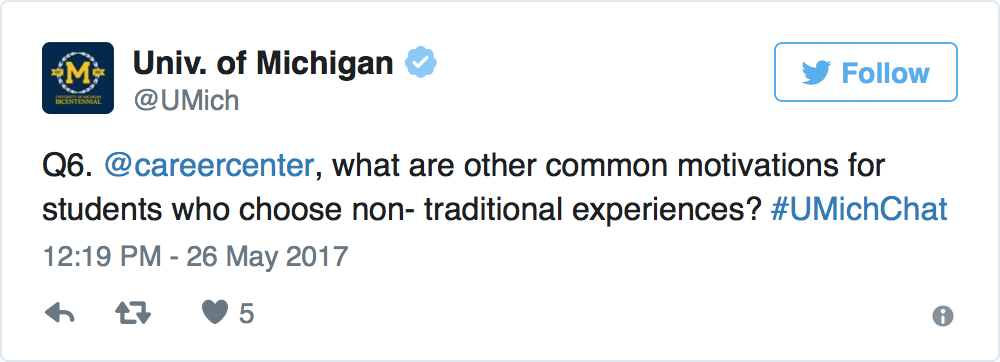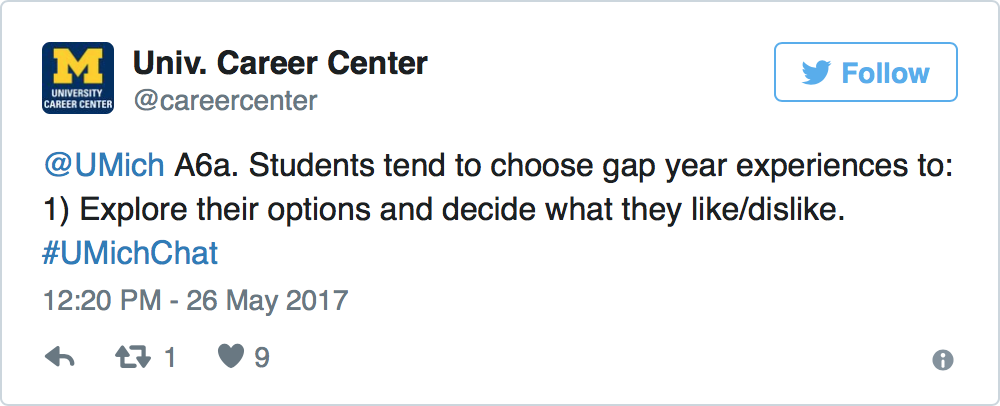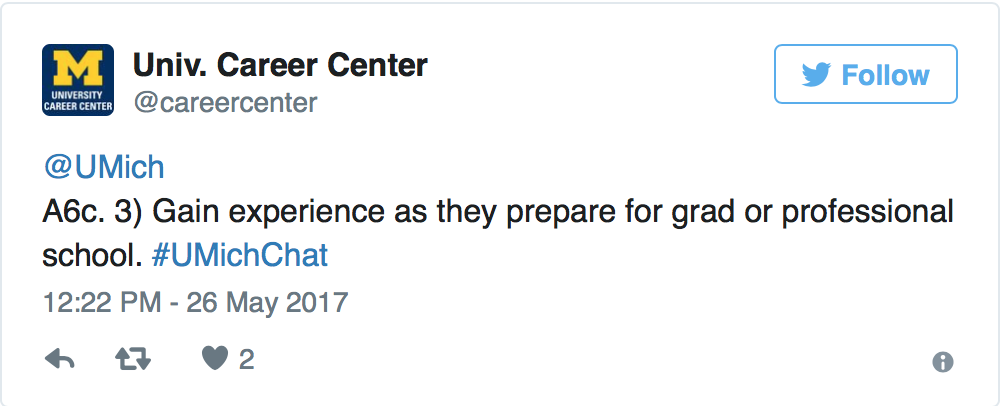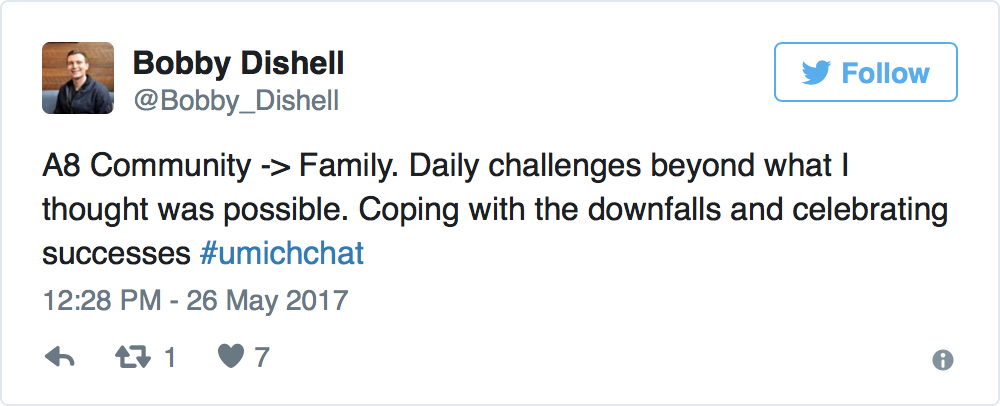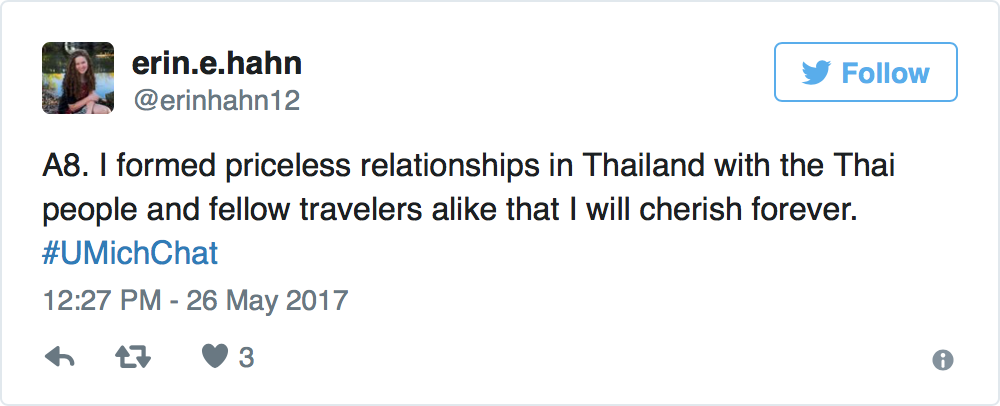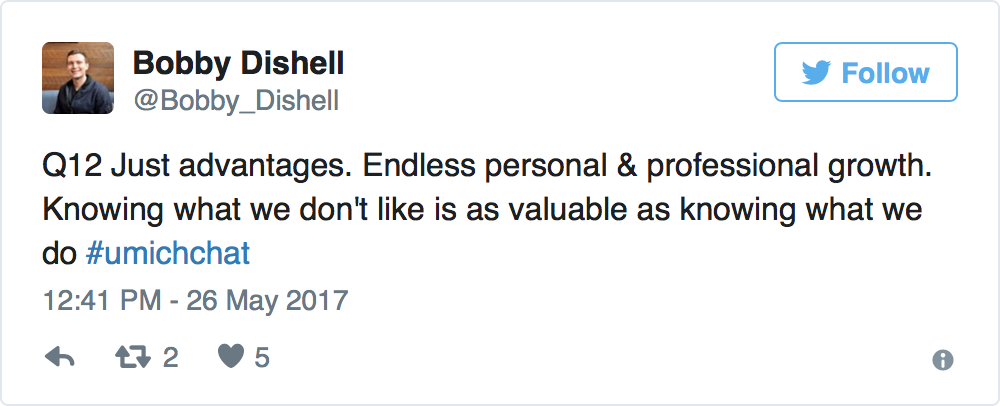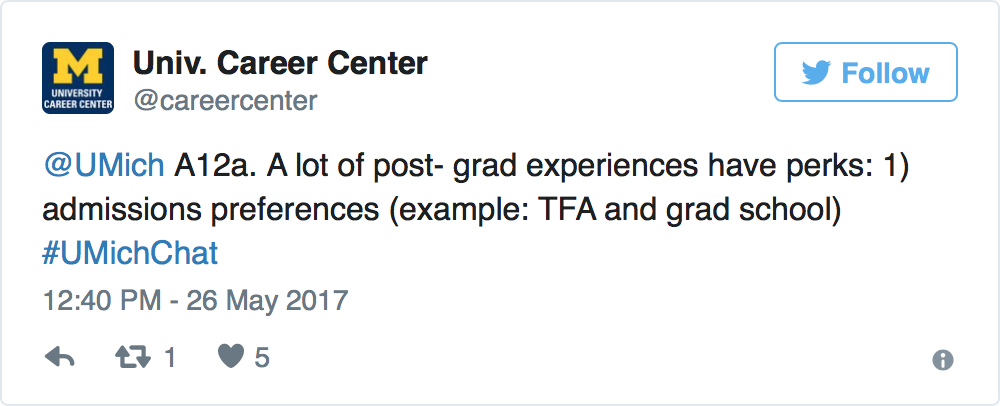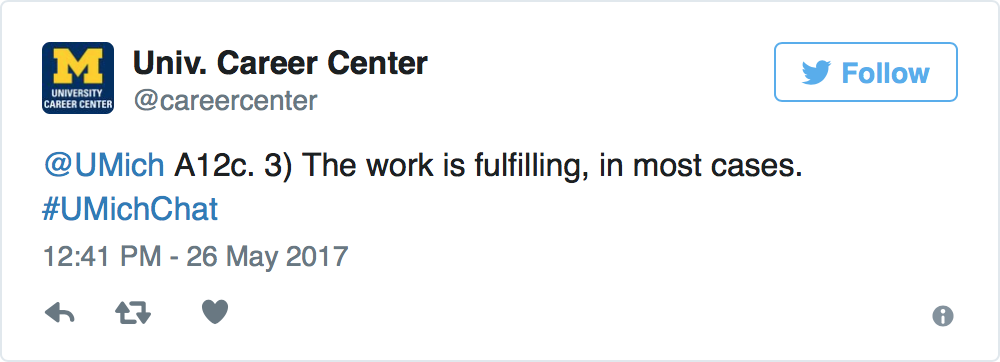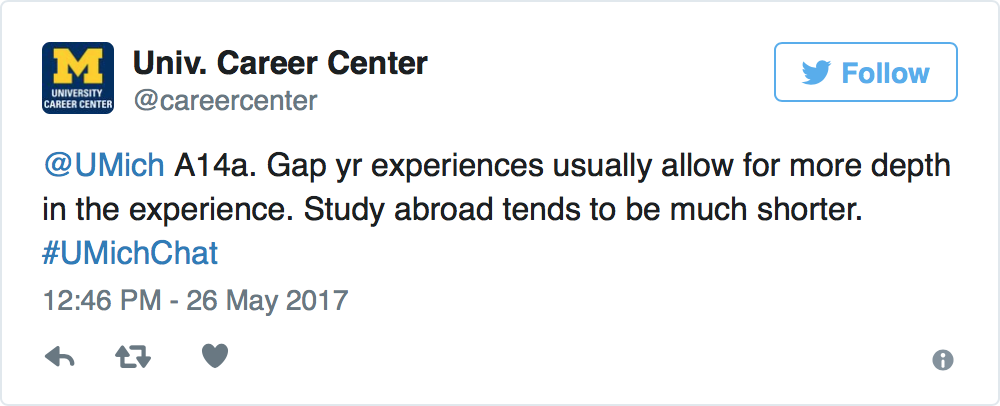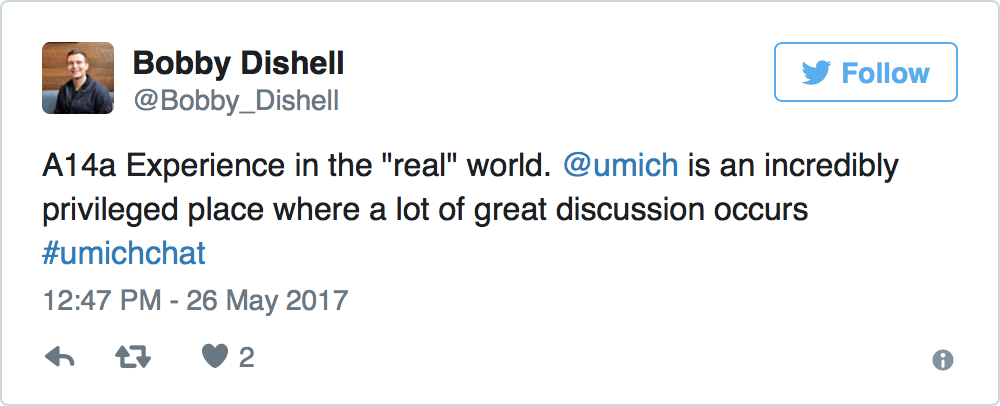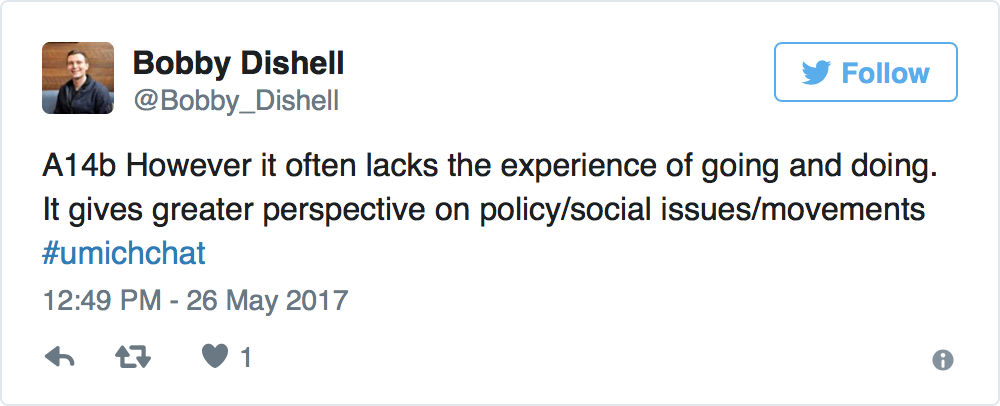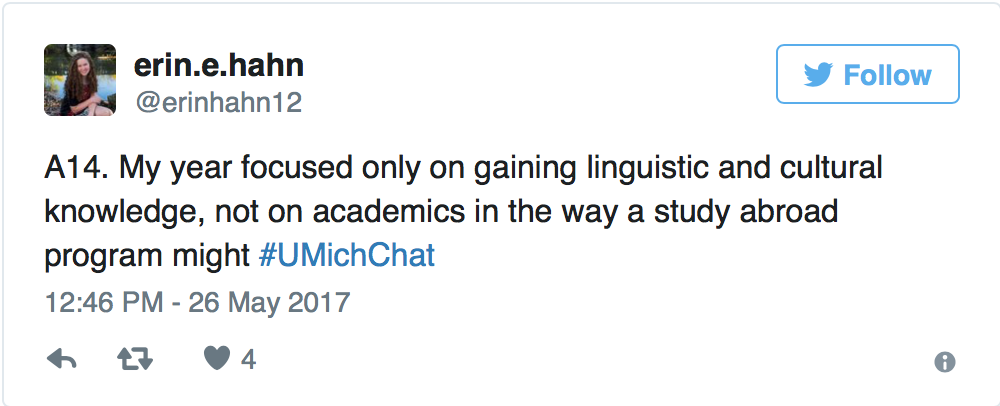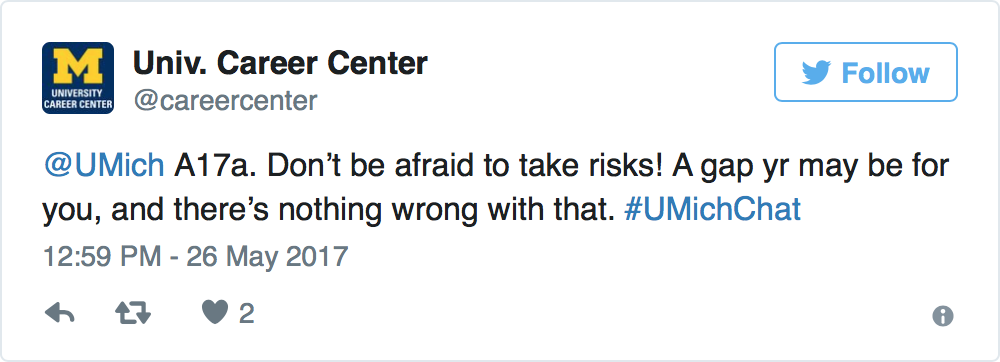High School. College. Full-time job.
Students are often encouraged—whether by parents, teachers, or friends—to complete these steps consecutively if they want to be successful. Social and economic pressures, such as the fear of falling behind their peers or the need to pay off student loans, further solidify this standard. Although the high school/college/job pipeline might be the traditional student experience, are there alternative paths to success?
Student interest in taking a gap year continues to grow over time. The 2015 National Alumni Survey cites the desire to gain life experience, volunteer, take a break from academics, explore study options, or travel as some of the most common motivations for students who choose to take a gap year.
No two non-traditional student experiences are the same in terms of when they occur, how long they last, or what they entail. Our May 2017 #UMichChat discussed the motivations behind, as well as the overall value of, non-traditional student experiences, in an effort to educate our community about “the road less traveled” to success. Three of our panelists were U-M students who chose non-traditional experiences: Bobby Dishell is a 2015 Baltimore Corps Member for Teach for America; Erin Hahn participated in the Rotary Youth Exchange in Thailand for a year after graduating from high school; and Bruce Portnoff served as a Navy Corpsman for eight years before enrolling at U-M. Dr. Clarence Anthony, Jr., a career coach at the University Career Center, rounded out our panel, providing insight about the experiences of non-traditional students at U-M.
Another U-M alumna, Lauren Jones, joined the conversation to share insight gained from her experience working in tourism after deciding the corporate world might not be the best fit for her.
Our student panelists had different gap experiences, but their reasons for choosing them all revolved around a desire to further their education outside the classroom and gain a better understanding of other cultures and career opportunities.
Although some cited difficulties integrating into a different culture, physical and emotional exhaustion, and feelings of isolation, all felt that overcoming these challenges was what made their experiences so valuable.
We also discussed whether non-traditional experiences are an advantage or disadvantage to a student’s education. Although students who choose to take a gap year may not have everything “all figured out” after their experience, most of our panelists agreed that it benefited their education.
What do these non-traditional experiences provide that school-sponsored experiences, such as study abroad, do not?
Information from our panelists, as well as data from the 2015 National Alumni Survey, suggests that students come out of their non-traditional experiences with improved skills, increased self-awareness, and new knowledge that can help them in both academic and professional settings. Gap years might not be the norm, but that doesn’t mean they aren’t worth pursuing.
If you missed this conversation, you can check out our archive on Storify. We hope this chat has shed some light on a topic that isn’t often discussed in an academic setting, and we look forward to facilitating more valuable conversations in the months to come!
This post was written by Mackenzie Francisco, UMSocial Intern. #StaySocial with her on Twitter @mackenzie_fran



